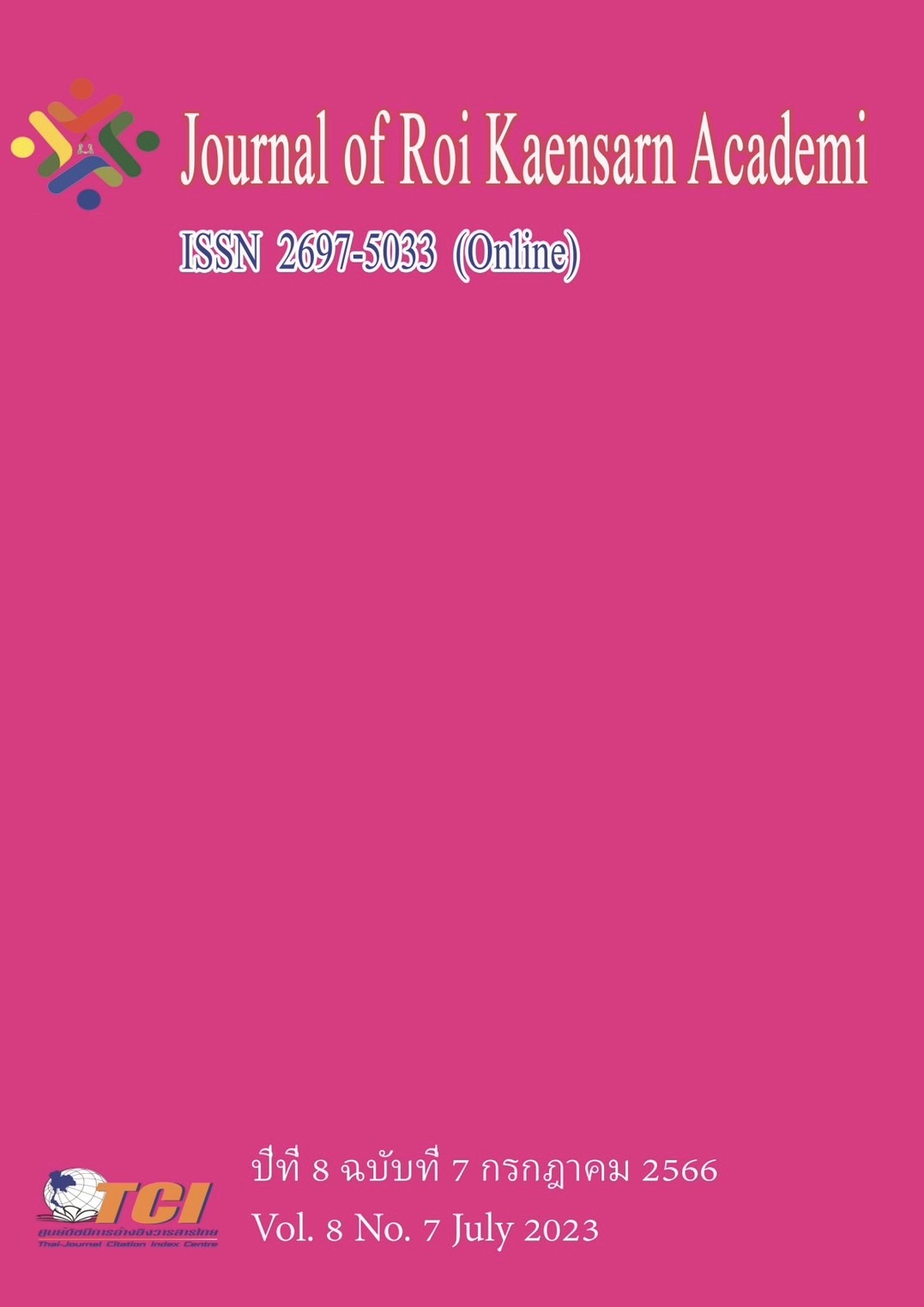Curriculum Evaluation of Bachelor’s Degree in Network Engineering at Sichuan University of Science & Engineering
Main Article Content
บทคัดย่อ
The objectives of this research were to evaluate the curriculum of a bachelor’s degree in Network Engineering at Sichuan University of Science & Engineering. The curriculum was evaluated by implementing the CIPP model emphasizing context, inputs, processes, and outcomes on Stufflebeam’s decision-making approach. The research sample consisted of 353 people, selected by purposive random sampling, and divided into 5 groups: 19 administrators, 24 instructors, 230 students, 40 undergraduates, and 40 employers. The instrument was a questionnaire. Mean, standard deviation, and percentage were used for data analysis. The findings were as follows: 1) The opinions of administrators, instructors, students, graduate students, and employers toward a bachelor’s degree in Network Engineering at Sichuan University of Science & Engineering were at a high level in all aspects and sorted in descending order as follows: process (x̅ =4.12), input (x̅ =4.02), product (x̅ =4.01) and context (x̅ =3.97). 2) Considering over aspects, it was found that: 2.1) All contexts were at a high level and ranked from the highest mean respectively: subject content, curriculum composition, curriculum construction, and curriculum objective. 2.2) All inputs were at a high level and ranked from the highest mean respectively: budget and facility, administrator, learning materials, instructor, and curriculum objective. 2.3) All processes were at a high level and ranked from the highest mean respectively: measurement, evaluation, and learning management. 2.4) All products were at a high level and ranked from the highest mean respectively: knowledge, emotions, attitudes, values, and skill.
Article Details
เอกสารอ้างอิง
Duan, D. Y. (2017). Research on Undergraduate English-only Curriculum Evaluation on the Basis of CIPP Model in Chinese Research Universities - A case study of H university. China: Higher Education Press. 42-59
James, W. (1993). Educational Evaluation. Boston, MA: Allyn and Bacon.
Jiang, G.Y. (2007). Theory and practice of higher education evaluation based on CIPP. China Higher Education Research. (8), 10-12.
Li, X. (2021). Educational evaluation reform we talk about⑬. The Paper. Online. Retrieved October 1, 2022, from: https://www.thepaper.cn/newsDetail_forward_11975679
Liu, M. D., and Zhang, Y. M. (2023). Research on the Evaluation of the Master of Education Program: Research on the Construction of Evaluation System of Blended Teaching Mode Based on CIPP Evaluation Model. (03), 127-134.
Ministry of Education. (2012). Catalogue of undergraduate majors in general higher education institutions. Online. Retrieved October 15, 2022, from: http://www.moe.gov.cn/srcsite /A08/moe1034/s3882/201209/W020170420567985974471.doc
Nikijuluw, R. C. (2020). The use of CIPP in the extensive listening course at PSDKU Program. KOLI Journal. 1, 116-123.
Pirak, B. (2011). An Evaluation of the Vocational Diploma Curriculum in Hospitality and tourism at Ayutthaya Vocational College. Master of Education. Bangkok: Ramkhamhaeng University, 86-90
Saran, L. (2009). An Evaluation Master of Education Department of Sociology B.E.2538 Khon Kaen Univesity. Master of Education. Khon Kaen: Khon Kaen University, 65-66
Sichuan Provincial Education Department. (2020). Online. Retrieved December, 23, from: http://edu.sc.gov.cn/scedu/c100495/2020/12/23/20b3ae96bde34ab3a85a4c5395bd2682.shtml
Srinonyang, P., Chotichai, B., Thawongsa, K., Aphaiso, P., and Hongsiri, Y. (2020). Journal of Modern Learning Development. 5 (5), 182-194.
Stufflebeam, D. L. (1971). The relevance of the CIPP evaluation model for educational accountability. Journal of Research and Development in Education. 5, 19-25. doi:10.1007/978-94-010-0309-4_4
Stufflebeam, D., and Shinkfield, A. (2007). Evaluation, Theory, Models and Applications. San Francisco, CA: Jossey-Bass, 81-94
Taba, H. (1962). Curriculum development: Theory and practice. New York: Harcourt, Brace, & World.
Tanner, D., and Tanner, L. (2018). Curriculum development: Theory into practice. (5th ed.). Pearson.
Wang, Q., and Liang, L. (2021). Evaluation of College English Curriculum Development Based on CIPP Model. Higher Education Development and Evaluation. 23 (1), 25-32.
Wilasinee, P., and Prasart, N. (2019). The Evaluation of Educational Science Curriculum in field of Geographic Information (Improvement Curriculum since B.E.2556) Faculty of Information Science in Maha Sarakham University, Thailand. Journal of Education Rajabhat Maha Sarakham University. 2 (31), 411-422.

